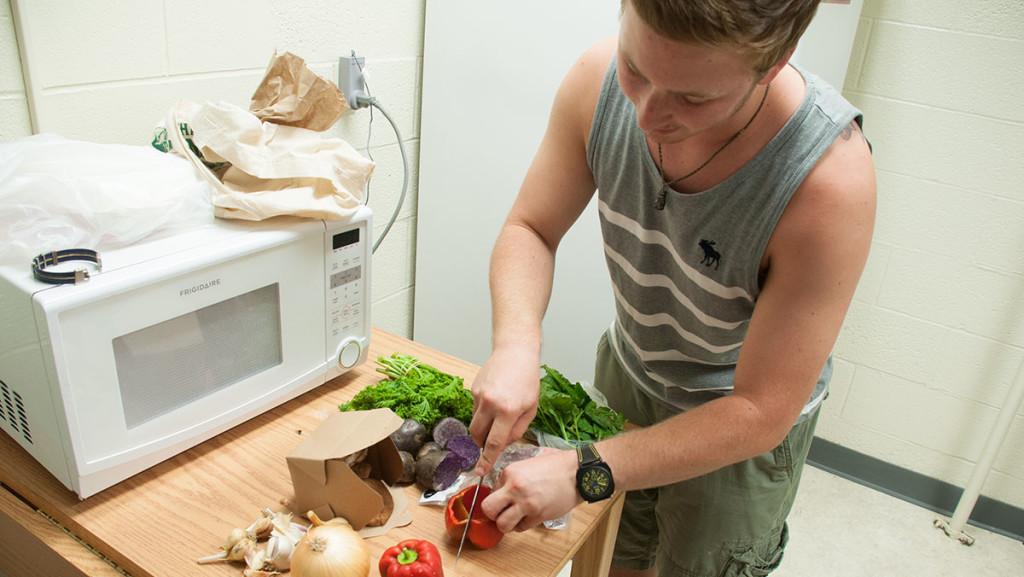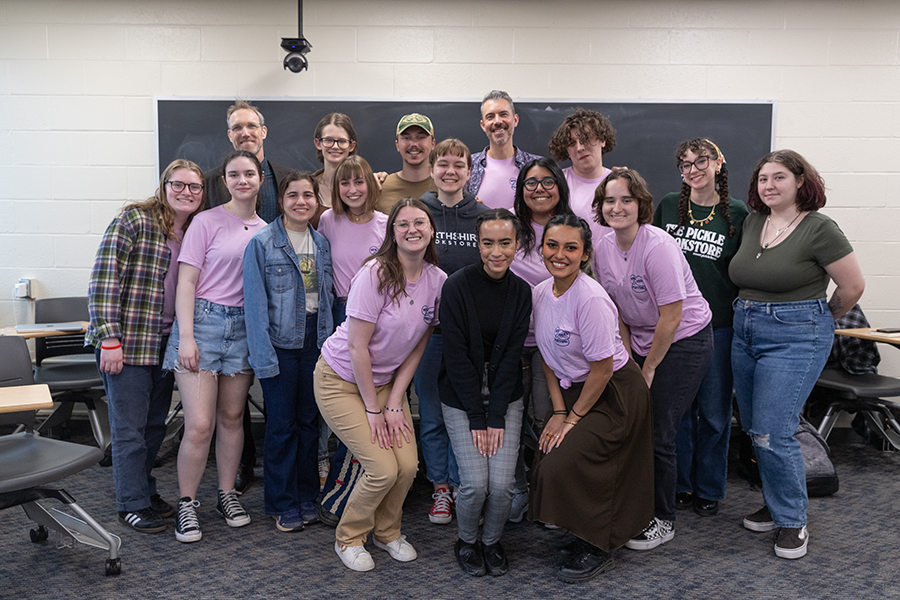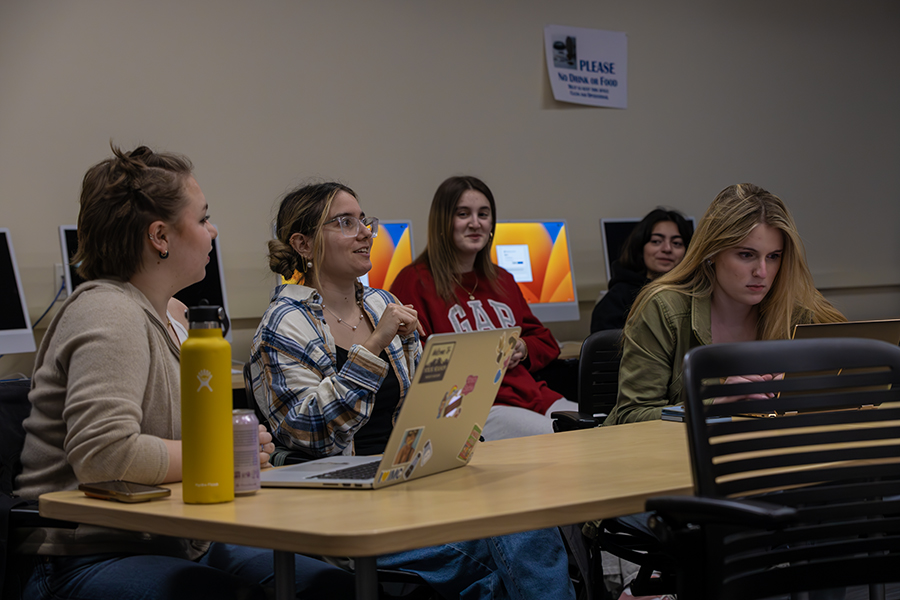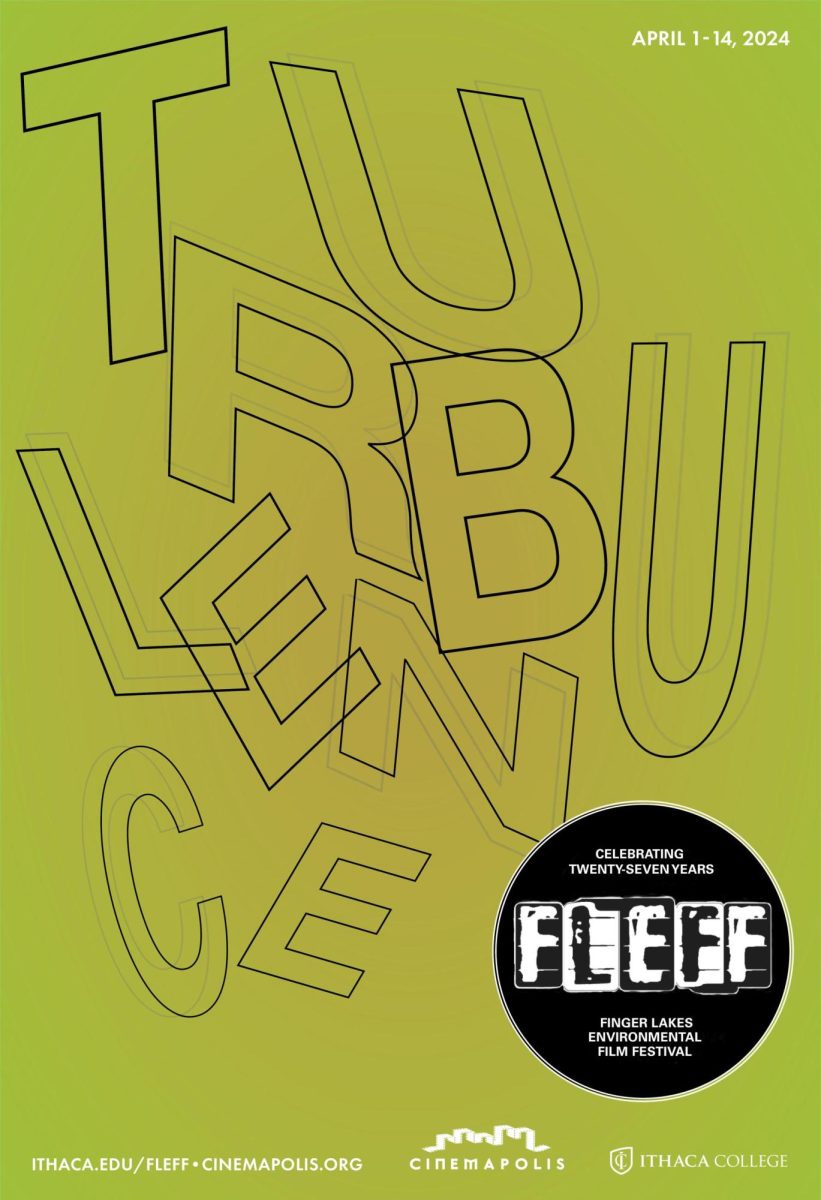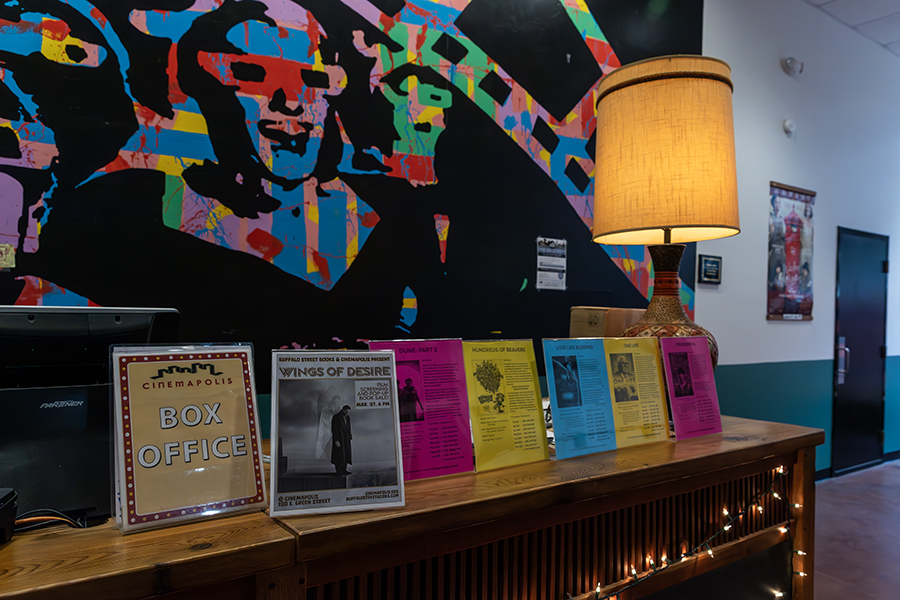Ever since making his first spaghetti meal at age 11, freshman Jacob Rosen has been in love with cooking. He finds peace in plating and decided that he must get more people involved in the kitchen. Rosen uses his cooking skills to make homemade meals for his clients and to teach them the basics of cooking.
Staff Writer Sydney O’Shaughnessy spoke with Rosen about his passion for cooking, his cooking “business” and how he is using his talent to benefit the student community around him.
Sydney O’Shaughnessy: Where did your passion for cooking originate?
Jacob Rosen: I just kind of flipped through the cooking channels when I was younger, and I started to think maybe I could do that. I’m a visual learner. I do carpentry and handy work as well, so I’m super into hands-on learning and building. I like seeing something from start to finish. Whether it’s building something or cooking, I like to see the finished product and watch it from the beginning to the end, so I can say that I had a hand in the entire process. I like that idea in cooking.
SO: What is your favorite part about cooking?
JR: The reactions that you get from people. Obviously, some people will fake it, but when people really do enjoy your food, you can tell. You can see their reactions and facial cues. It’s really awesome to see people like your food.
SO: Can you tell me about your cooking “business” on campus?
JR: I’m not essentially making money. It’s a business in the sense that people hire me, but it’s not necessarily for profit. The most I think I’ve made is like $4. I just like to cook. It’s like meditation to me. People always say, “Why are you slaving away in the kitchen?” and I tell them I’m not slaving. It’s fun for me. It’s my entertainment. They pay for the groceries, so it’s nothing out of my pocket. They just pay, and then I cook for them. I cook anything they want. I’ve had three clients already. They did Peruvian steak stir-fry, and they also had dessert as well. I think it was a $50 budget. There was a lot left over, but that’s kind of how the business benefits. I price it all out for them, and whatever money is left over, I keep for myself. Generally it’s like $2 or $3. That’s like my labor cost. Just recently, I just started offering — for people who want to learn how to cook — they can come in before dinner is ready and either watch, and I’ll teach them, or they can actually help.
SO: Why did you decide to try to create a cooking class on campus?
JR: I love teaching. I am a ski instructor as well, so I love teaching in general and sharing my experiences. There are a lot of people who love food but can’t cook anything. If they want to learn the basics, I love teaching people about food and teaching them about new ingredients that they aren’t so used to. My [resident assistant] and Claudia Ayers, the [First-Year Residential Experience] event planner, wanted to do an educational thing about local, sustainable and organic produce from the Farmers Market. Also with that, they wanted to teach people how to cook and really show them how to prepare the ingredients. There aren’t many people that are chefs on campus. I’ve only met two other people who like to cook, but they aren’t actively doing it on campus. Essentially, we are going to, hopefully, have me teach a small group of people about the ingredients from the Farmers Market, explain to them where it comes from and then just show them how to cut, cook and prepare it properly and how to make a dish out of it.
SO: Why is food sustainability important?
JR: Food sustainability is important because we need to maintain our products. It’s obvious that everything in the stores is processed. It’s all been through some kind of process, whether it’s chemicals or not — it’s been through some unnatural process that isn’t meant for that product. So getting something straight from the farm, you know exactly what it’s been through. I’m not going to bash on the grocery stores. They are fine. Some of the stuff is fine. I just believe you should know where it came from — know where your food has been. We want to know that every part of the product is being used. There is so much in the food world that goes to waste. People throw out edible parts of products. There’s a big movement in Brooklyn called [Nose] to Tail. It’s about knowing how to use the entire animal. Throwing out parts of the animal is wasteful. We’re throwing away such good food that you could feed so many people with.


